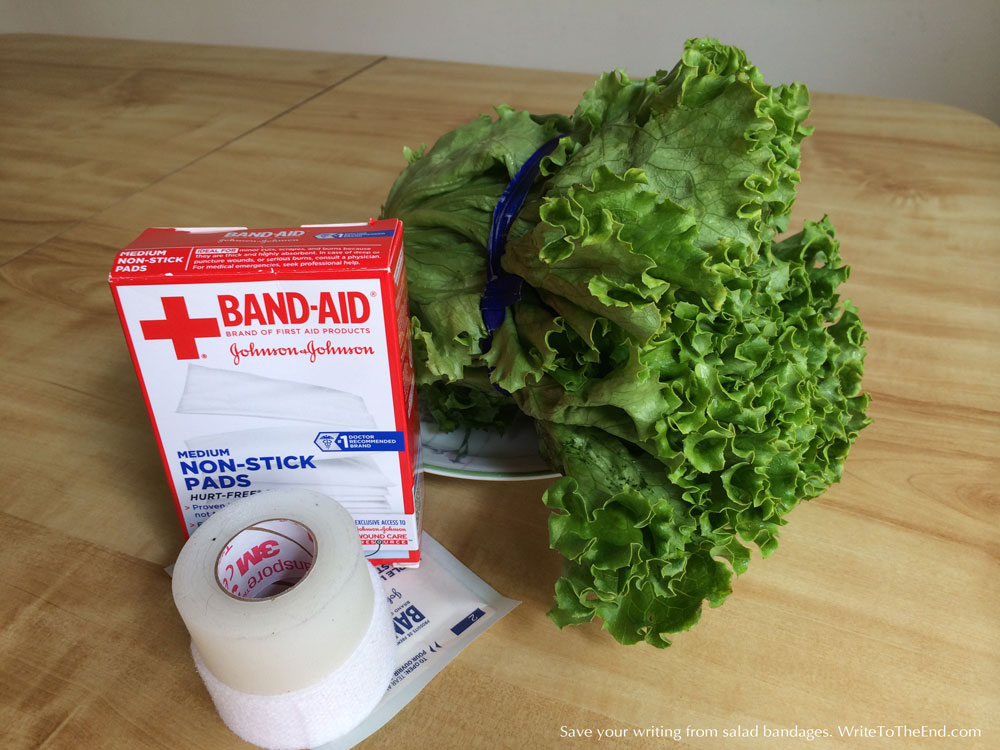
When I studied Spanish in high school, we had an assignment to write a recipe and present it in class. One of the recipes was for Homemade Ranch Salad Bandage – you know, that white stuff you put on a salad when it skins its knee.
Yes, they actually meant salad dressing. But guess what. The English-to-Spanish dictionary entry for “dressing” listed venda (wound dressing) first. That dictionary, just like a thesaurus, didn’t include any definitions. And high school students are prone to copying down the first word they find.
How many times have you seen a sentence that uses the wrong word, and the wrong word is a thesaurus synonym of the right word? I see this all the time. It often happens when the right word has already been used in a previous sentence. I understand the desire to avoid repetition, but repetition is better than not making sense.
Okay, usually the wrongness of the word isn’t as terrible as “salad bandage,” but still. Don’t you want to say what you mean?
You have the power to keep your writing free of salad bandages. All it takes is a dictionary.
Sound advice Keiko…hope all is well with your family.
I agree, the hazards of the lexicon are very recognized. I understand this difficulty continually in the text of those who desire to sound more learned than they actually are.
I am so pleased you took the occasion to write this considerate and educational piece of script.
[Yes, I wrote a simple response and then used the thesaurus to replace most of the important words with similar ones. /geek]
Oh my goodness, this brings back a memory of my work in a writing center where i sat with a student who seemed perfectly fluent in English when I talked to her, but yet her paper was so foreign-sounding. I would pause after a sentence and ask if she could put it in other words. Sure, she could! “Say THAT!” I’d proclaim happily. Finally, I stopped and said, “At first i thought you were an ESL student because this wording was not like a native speaker, but you speak English perfectly well. How did this happen?” You know the answer: online thesaurus.